USA Beyond "Black and White"— now sees "Shades of Gray"
America Sees Beyond Black and White— begins to appreciate the Shades of Gray; all 52 of them and more.
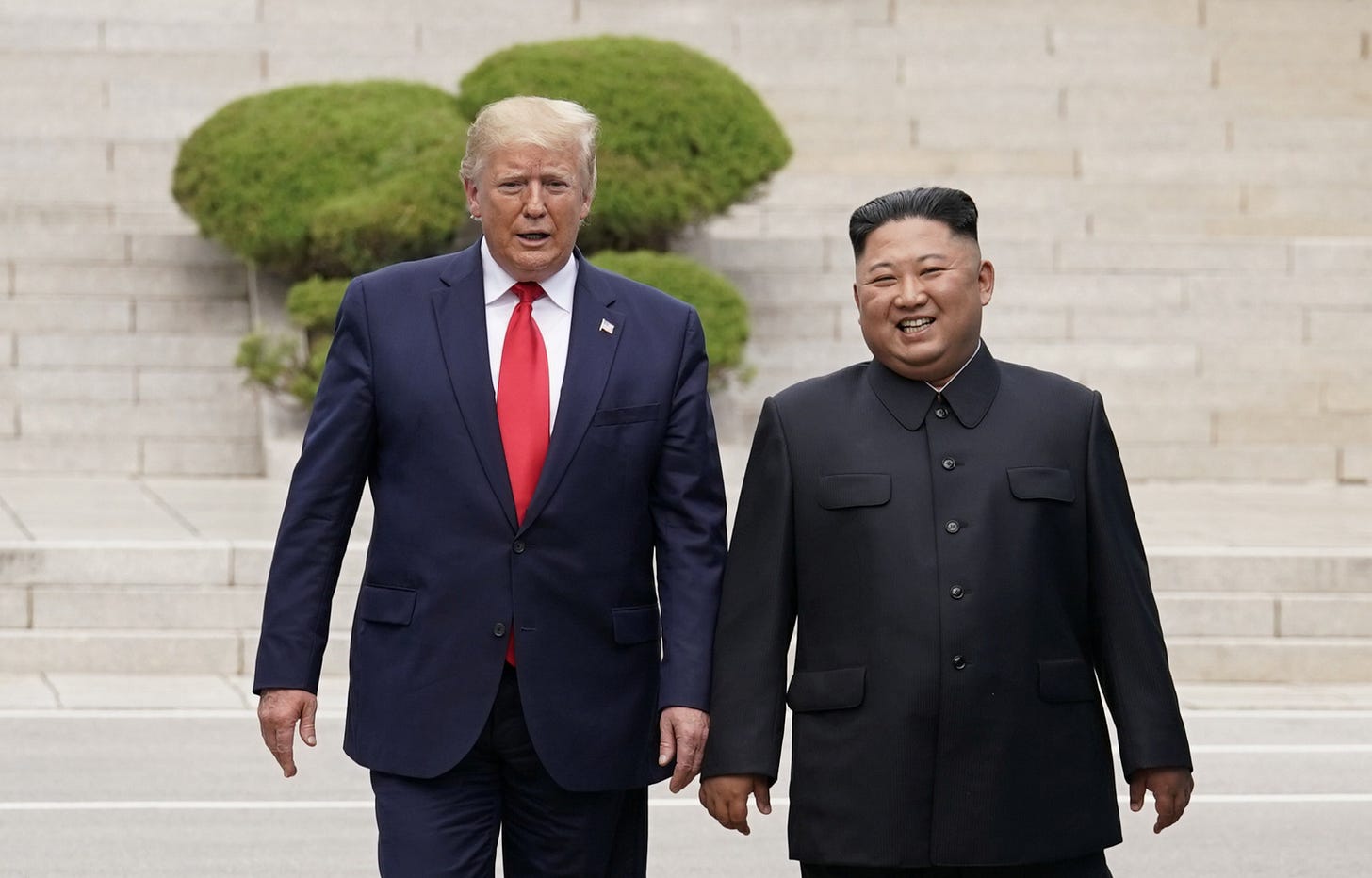
A New Spectrum of Understanding
The very essence of America, known for its stark contrasts and clear demarcations, is undergoing a metamorphosis. Historically, this nation perceived the universe in binary terms. Just as the digital world understands data in zeros and ones, America's societal and political psyche had been wired to think in terms of black or white, right or wrong, and capitalism or communism. These binary views not only defined policies but also how the common citizen perceived national and global affairs.
However, the evolving landscape suggests a shift from these absolutes. The country now seems to embrace a vast spectrum of grey, possibly 52 shades or even more. This progression signifies a maturing society, recognising that life cannot be pigeonholed into strict dichotomies. Although we exist in a digital era, where technology might deal in absolutes, the reality of life, politics, and human interactions remains analogue.
In this analogue reality, views, opinions, and principles are not merely endpoints but lie on a continuum. This range allows for flexibility, understanding, and an acceptance of varying perspectives. It's akin to adjusting the tuner on a vintage radio, where frequencies aren't just about hitting a specific number but finding the right balance in between. America's societal fabric seems to be weaving in this analogue mentality, understanding that solutions and perceptions are not just about extremes but about the in-betweens, the middles, the compromises, and, most importantly, the acceptance of varied hues in every aspect of life.

The Polarised Past
Historically, America's political and societal landscape was deeply entrenched in polarisation. Several issues drew clear lines in the sand, causing passionate debates, street marches, and legislative battles. These divisions weren't just limited to ideological disagreements; they often played out in real-time, affecting lives and moulding public opinion.
Gun rights stood out prominently in these debates. The right to bear arms, as enshrined in the Second Amendment, became a litmus test of sorts, pitting individual freedom against public safety concerns. The haunting spectre of mass shootings added fuel to the fire, with automatic weapons becoming a central point of contention. While one camp advocated for tighter regulations, background checks, and an outright ban on assault weapons, the other fiercely defended the sanctity of the amendment and the right to self-defence.
The question of marijuana's legality presented another divisive front. With a myriad of state-specific laws, America's map was a patchwork of differing stances on weed. While some states embraced its medicinal and recreational use, others maintained strict prohibitions, highlighting the country's struggle to reach a consensus on its criminality and benefits.
Moreover, issues like abortion and same-sex marriage previously left little room for middle ground. Abortion, rooted deeply in moral, religious, and individual rights debates, saw states enacting laws that either restricted or safeguarded a woman's right to choose. Same-sex marriage, on the other hand, was a testament to the evolving understanding of love, rights, and societal acceptance.
However, amidst these stark divides, a noticeable shift is occurring. Today's America seems more inclined to search for common ground. While the debates on abortion remain, there's a perceptible movement towards more nuanced conversations, understanding the complexities women face. On gun rights, the focus is slowly shifting from blanket bans to more practical measures like improved registration processes, mental health checks, and ensuring responsible ownership.
In essence, America's past might have been about staunchly defending one's corner, but its present hints at a nation striving for dialogue, understanding, and a collective path forward.

The Vanishing Morality Principle
In previous eras, the American narrative was largely defined by a stringent adherence to political morality and principles. These unwavering standards, held both domestically and in international relations, influenced decision-making and were benchmarks against which actions were measured. Such principles often acted as guiding stars, ensuring that the nation's path was paved with ethical considerations and moral clarity.
However, as the global landscape evolves, there's a discernible shift in this paradigm. The once inflexible boundaries of political morality seem to be softening, making way for pragmatism and nuanced diplomacy. America is gradually coming to terms with the realisation that the world, in its vast complexities, cannot always be viewed through a clear-cut lens of 'right' or 'wrong'.
This evolving mindset is evident in the nation's foreign policy manoeuvres. A prime example is the Trump administration's approach to North Korea. In a departure from traditional American policy, which often shied away from direct negotiations with nations deemed 'rogue' or 'adversarial', President Trump's sit-down with North Korean leader Kim Jong-un in Singapore was groundbreaking. While critics argued that it bestowed legitimacy on a regime known for human rights abuses, proponents saw it as a necessary step towards peace and denuclearisation.
Such instances underline a broader trend: America's willingness to engage with the grey areas, understanding that rigid moral frameworks might sometimes limit the possibilities of diplomacy and progress. It acknowledges that while a person, country, or policy might not meet all traditional benchmarks of acceptability, they cannot be dismissed outright. Engaging, understanding, and then making informed decisions seems to be the emerging ethos, rather than simply relying on age-old tenets of political morality.
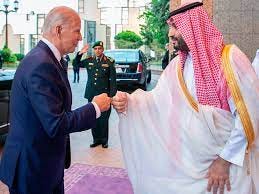
The Khashoggi Controversy: Shifting Sands of Diplomacy
The tragic assassination of Jamal Khashoggi, the Saudi journalist, became a flashpoint in international relations, bringing to light the complexities of diplomacy, national interest, and morality. The initial aftermath saw a global outcry, demanding justice for Khashoggi and a thorough investigation into the incident. Media houses and advocacy groups painted this episode as a stark reminder of the lengths to which authoritarian regimes could go to silence dissent.
However, as time passed, the vehemence of this outrage began to wane, overshadowed by geopolitical considerations and the intricacies of international alliances. President Trump's decision to not outrightly concur with his intelligence agencies' findings, which implicated Saudi leadership in the murder, highlighted the tenuous balance between holding allies accountable and preserving strategic partnerships.
The episode took another turn with President Biden's visit to Saudi Arabia. While some viewed it as a pragmatic approach to diplomacy, prioritising strategic alliances over punitive actions, others perceived it as a softening stance, indicating the transient nature of international condemnations.
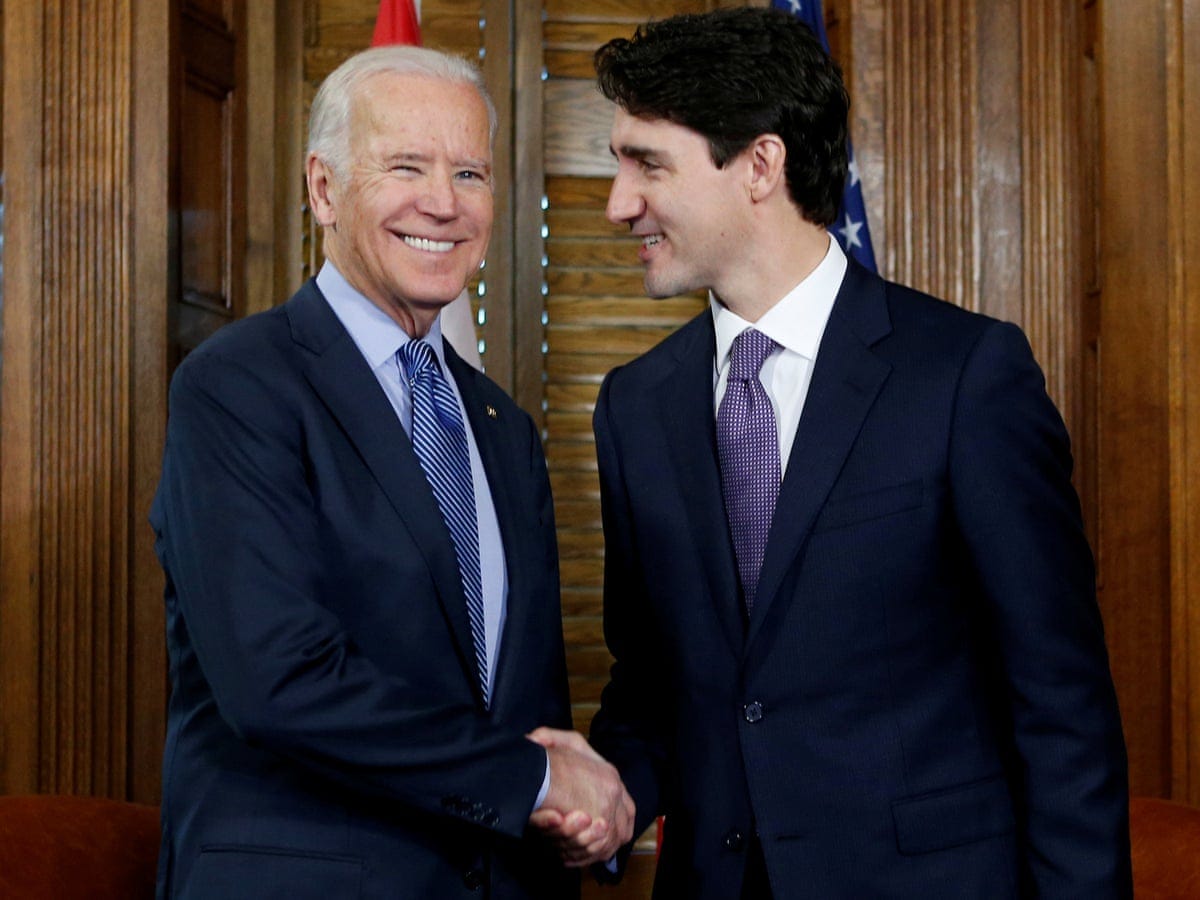
USA on Trudeau’s Anti-India Yelping
The Khashoggi incident isn't an isolated example of such diplomatic intricacies. Take the recent events in Canada, where Prime Minister Justin Trudeau pointed fingers at Indian state actors for the assassination of a pro-Khalistan Canadian Sikh citizen in Vancouver. Such an accusation could have easily snowballed into a major diplomatic rift, between USA and India in earlier times. However, the response from the USA, a key player in international politics, remained muted. While publically the US stance was reserved, it is plausible that behind-the-scenes intelligence sharing and discussions took place with Canadian agencies, ensuring that public sentiments did not overshadow facts and intelligence.
Both episodes underline a vital aspect of modern-day international relations: the interplay of morality, national interest, and diplomacy. While public sentiments and immediate reactions might demand strict actions, the long-term view often hinges on strategic interests, regional stability, and a myriad of other factors. This nuanced approach, while sometimes perceived as compromising on principles, is often essential in navigating the complex maze of global politics.
The Enigma of Donald Trump: Controversies, Indictments, and Continued Clout
Donald Trump, the 45th President of the United States, remains one of the most polarising figures in contemporary American politics. His tenure, marked by a series of controversies, policy shifts, and unprecedented events, has left an indelible mark on the country's political landscape.
An Election Like No Other The aftermath of the 2020 presidential election stands out as a stark reflection of the divisions and tensions prevalent in the nation. Having faced a closely contested election, Trump's refusal to accept the results and his relentless efforts to have them declared invalid signalled a departure from the traditional peaceful transition of power that has been a hallmark of American democracy.
Storming of the Capitol: A Dark Day Perhaps one of the most troubling episodes in recent American history was the storming of the Congress in January 2021. As Vice President Mike Pence was in the midst of certifying the election results, a mob, allegedly incited by Trump's rhetoric, laid siege to the Capitol. This event, symbolising a direct assault on the country's democratic institutions, led to numerous convictions. However, the man at the epicentre of it all, Donald Trump, despite allegations of having actively incited the violence, has yet to face any formal indictment or charges.
Legal Battles and Controversies Beyond the political arena, Trump's challenges continue. He finds himself embroiled in legal quagmires, with active criminal proceedings in at least four cases. Furthermore, in a civil suit in New York, entities under his direct control have been found to have committed fraud. These legal challenges, while not necessarily leading to his conviction or imprisonment, do cast shadows on his character and conduct.
The Political Phoenix Yet, in the face of these challenges, Trump's influence remains undeniable. He continues to command a significant following and is often touted as a leading contender for future Republican nominations. Adding to the intrigue is the rise of formidable Republican contenders of Indian origin, namely Vivek Ramaswamy and Nikki Haley. Their ascendancy highlights the evolving dynamics within the party and the broader American political scene.
In summary, Donald Trump, for all his controversies and challenges, remains an enigma. His sustained clout, even amidst a sea of legal and political challenges, underscores the complexities and unpredictable nature of American politics.
International Politics: A Muted Response Amidst Global Tensions
The ever-evolving landscape of international politics often presents nations with a myriad of challenges and moral dilemmas. For the United States, its stance on the Israeli-Palestinian conflict serves as a testament to its shifting approach to global affairs, reflective of both strategic interests and internal dynamics.
Unanimous Condemnations and Selective Silences Recent times have witnessed an almost unanimous condemnation, especially in the United States, of Hamas-led attacks from the Gaza strip on Israel. This collective voice spans across political divides, from seasoned politicians to figures in the tech industry, who traditionally maintain a more reserved presence in political discourses. A prime example of this is Sundar Pichai, the CEO of Google, whose response to such attacks underscores the broad-based consensus on this issue in the US.
In stark contrast, however, is the muted American response to Israeli actions, especially when it involves bombings of civilian areas in the Gaza strip. This conspicuous silence, juxtaposed against the loud condemnations of Hamas attacks, reveals the complexities of American foreign policy.
Strategic Alliances and Moral Dilemmas The U.S.-Israel alliance has historically been strong, grounded in shared strategic interests, democratic values, and historical ties. This bond often shapes America's response, or lack thereof, to certain actions by Israel. It's a dance of diplomacy where strategic interests sometimes outweigh vocal condemnations, especially when it concerns a close ally.
However, this approach is not without its critics. Many argue that such a stance, which appears to be selective in its moral outrages, undermines America's global standing as a beacon of democracy and human rights. The challenge for the U.S. lies in navigating this tightrope, balancing its strategic interests with its moral imperatives.
Summing Up America's response to international crises, especially in the Israeli-Palestinian context, underscores the nation's evolving foreign policy approach. While strategic interests remain paramount, the challenge lies in ensuring that moral principles and global perceptions are not unduly compromised. In the intricate dance of diplomacy, finding the right balance remains the eternal challenge.
Navigating Truths and Priorities in a Post-Factual Era
The realm of facts and their interpretation, especially in politics, has been under intense scrutiny in recent times. Daniel Patrick Moynihan, a respected U.S. Senator from New York and diplomat, once notably remarked, "Everyone is entitled to his own opinion, but not his own facts." A similar sentiment is attributed to James R. Schlesinger, a formidable figure who served as the U.S. Secretary of Defense. Both statements underscore the idea that while perspectives can be manifold, the foundation of facts upon which they are built should remain constant.
However, this clarity is increasingly becoming blurred, as evidenced by the Trump administration's coining of the term "alternative facts." This phrase, introduced to the public lexicon, has become emblematic of a new era where objective truths can be challenged or reshaped to fit particular narratives. The implications of such a shift are profound, casting doubts on information sources and making objective discourse challenging.
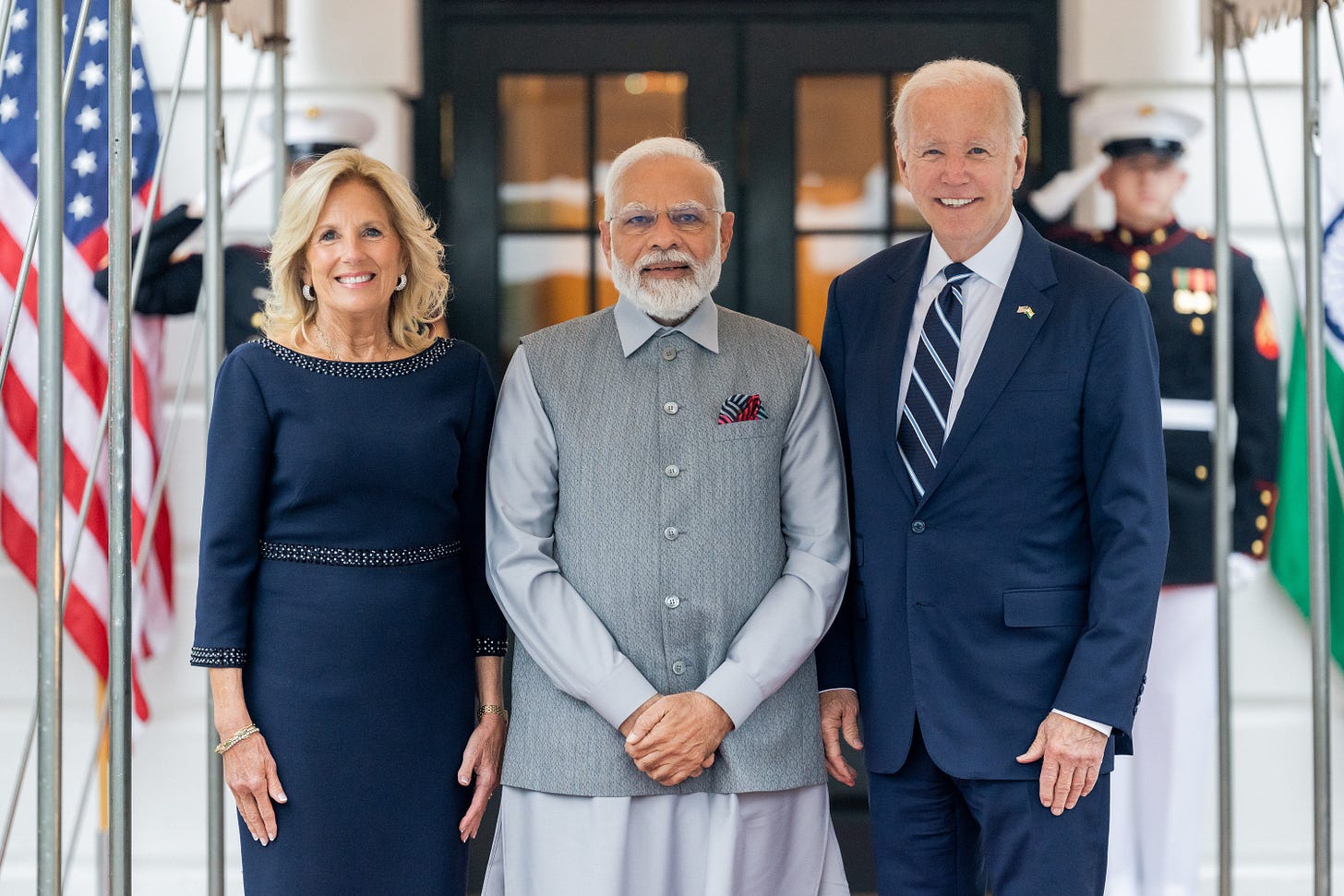
This fluidity in facts and their interpretation is not limited to domestic debates but extends to the realm of foreign policy. Henry Kissinger, a towering figure in international relations and a former U.S. Secretary of State, is often associated with the perspective that “foreign policy is based on priorities, not principles”. Whether or not he precisely articulated this sentiment, the idea echoes a hard truth about the complexities of international diplomacy. Countries, including the U.S., often find themselves juggling their stated values with on-ground realities, leading to decisions that may seem at odds with their proclaimed principles.
In sum, both in interpreting facts and in conducting foreign relations, the U.S. finds itself navigating a complex landscape. Balancing truth with narrative, and principles with priorities, remains a central challenge in the nation's ongoing political discourse.
Conclusion: The Evolving Ethos of Public Life
There's a palpable shift in the way public life and decision-making processes are perceived in America. Historically, moral imperatives were at the forefront of public discourse. Policies, actions, and stances were often judged on a clear moral compass, defining what was deemed right and wrong. However, in today's intricate socio-political landscape, this binary view is giving way to a more nuanced understanding.
Amorality in public life doesn't necessarily suggest a lack of morality but rather an acceptance that not every decision can fit neatly into predefined moral boxes. It acknowledges that in the vast spectrum of grey, there lie complexities and contradictions that demand a broader perspective.
As USA grapples with its multifaceted challenges, from internal political divides to intricate foreign policy decisions, the move towards amorality, not to be confused with immorality, might be seen not as a decline but as an evolution. It's a recognition that in a world full of intricacies, absolutes might be limiting. Instead, a more flexible, understanding approach, which appreciates the myriad shades of grey, might be more fitting for the challenges of the modern era.

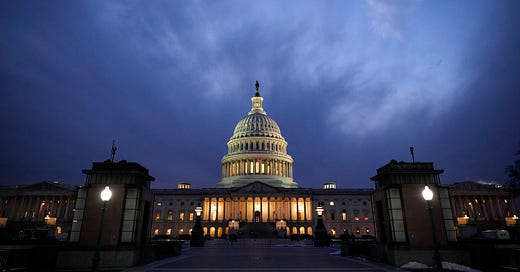


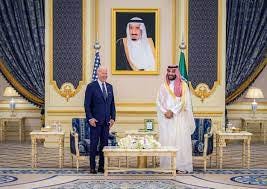
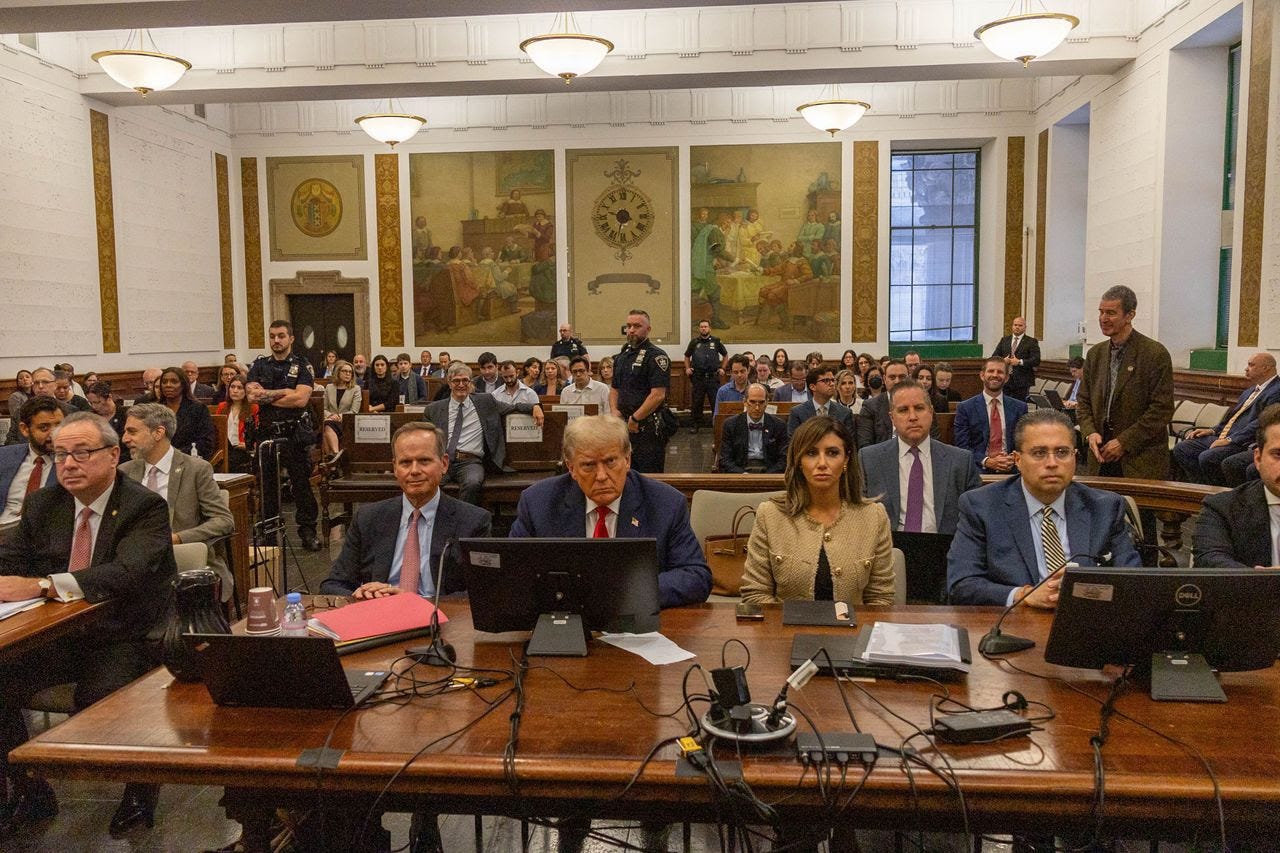





Wonderfully penned !
You hardly leave any room for anyone to add or critique.
America's history extends beyond the binary racial categorization of white and black. It is a complex tapestry of diverse cultures, including Native American, Hispanic, Asian, and many others. The history of the United States also encompasses waves of immigration from various countries, contributing to its rich multicultural heritage. This diverse history has shaped the nation's identity and continues to do so.
The most beautiful part or aspect of experience is providing opportunity to be or to do whatever you set out your heart to do. All dreams come true here . A magical place indeed.